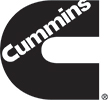The Legal Services Act 2007, which followed the Clementi Review, had two main practical effects:
- first, it established regulators for lawyers and the Legal Ombudsman independent of professional bodies for lawyers; and
- secondly (not relevant in the present context), it permitted the creation of private practices consisting of different types of lawyer (“LDPs”) and also consisting of lawyers together with non-lawyers (“ABSs”).
The Federation’s members employ, “in-house”, the following classes of lawyer to do IP work: registered UK patent attorneys, registered UK trade mark attorneys, English solicitors, and English barristers. Sometimes, members employ European patent attorneys lacking national registration; these are not lawyers under the Legal Services Act, but valuably their communications with their clients/employers are privileged on a par with registered UK patent attorneys (Copyright, Designs and Patents Act 1988, Section 280).



































